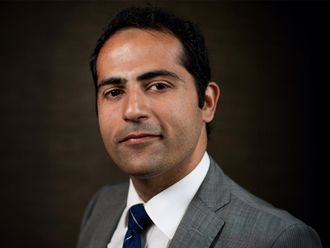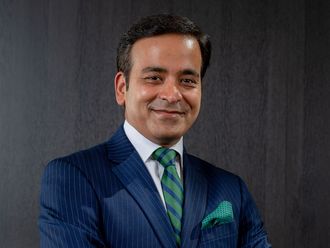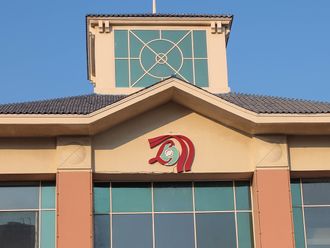Positive news is not always an outright invitation for celebration. In fact, it calls for a little bit of caution and measured optimism.
I am talking about the recent rally of crude oil prices with West Texas Intermediate passing the $80-per-barrel mark and prices generally rising for the past two weeks to reach the highest level so far this year. For the last few months almost all analysts and observers including myself have been saying that prices could soften or just hold their ground at best. Therefore, I see no reason to change this position as the recent rally does not have much to do with changing oil market fundamentals of supply and demand.
For this reason, it is difficult to understand the number of reports that have emerged recently expecting or urging oil producers to go ahead with expansions and projects that have been slowed down, put on hold or cancelled.
Arturo Grimaldi, senior vice-president for Technip, the engineering company, expects the GCC countries to award more than $60 billion (Dh220 billion) of oil and gas projects over the next three years and $21 billion will be awarded in the UAE alone in the next 6-9 months. Moodys, the credit rating agency recently said the GCC countries will witness a substantial increase of 43 per cent in their refining capacity. Although it did not specify a time-frame, the expected increase has been put at close to a substantial 2 million barrels per day in distillation capacity alone. Even Opec Secretary-General Abdullah Al Badri, commenting on the recent price movement, said that member countries have deferred 35 projects but are now reconsidering seven of them.
All this is very well for oilmen like me who welcomed some of these projects when they were first announced. But I believe things have changed. A rise in oil prices cannot be the only reason why one should go a head with a project. None of us is sure of the sustainability of the world economy or oil prices as the signals continue to be mixed. Therefore, I believe the current period should be one for consolidation and a review of all projects in the hope of making improvements dictated by these changing circumstances.
There is so much excess capacity in oil production and it would be counter-productive for producing countries to add more to it. As things are going now, the excess capacity in Opec member countries over and above the world demand for oil is close to 6 million barrels per day and could still be the same by 2013.
The same thing can be said about refinery projects where countries in the region have missed their chances by so many delays and other regions have gone ahead with their expansions such that there is a world surplus now and the tightness of few years ago is no longer there.
Expansion rethink
It is important here to consider scaling down or phasing out these expansions especially those aimed at export markets and also to reconsider refinery configuration in the light of emerging products consumption trends.
Gasoline is no longer leading refinery development and it is the turn of middle distillates to be considered. Light crude is less and less available and it makes sense to go for heavier grades and make use of the price differential between the two.
Environmental legislations are getting tighter and better for oil producers and refiners to account for their possible evolution in the coming years. Product specifications are changing especially with respect to sulphur even for fuel oil and refiners must prepare for this. Tackling the shortage in trained manpower must be made a priority by utilising the available opportunities in current fields and plants to train more people for the future.
All these important issues and others have now the opportunity to be considered before any revitalisation of projects on hold is made. Of course projects that are already well underway should be completed to avoid the extra costs that can be incurred by delays.
The oil industry in producing countries cannot be viewed in isolation from the other sectors of the economy. Additional revenue from oil is welcome anytime but it should not be necessary to redeploy this in the oil sector itself. In fact considering the state of capacities in the market, other sectors of the economy should take priority. After all there is so much to be done in education, health and social development that will constitute the best base for any future oil industry expansion.
- Saadallah Al Fathi is the former head of Energy Studies Department at the Opec Secretariat in Vienna.












